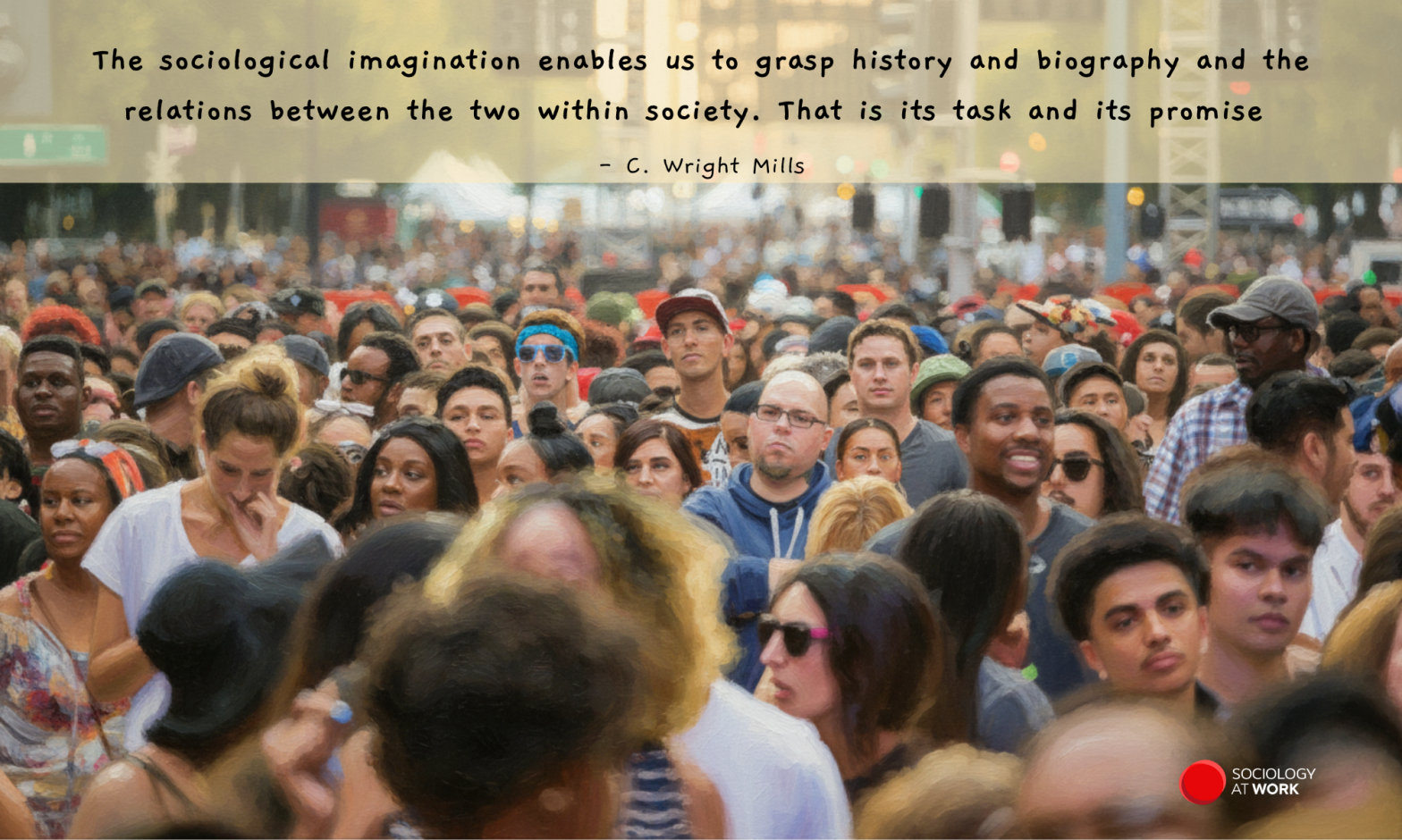Today’s sociology quote is from C. Wright Mills’ classic, The Sociological Imagination.
“Neither the life of an individual nor the history of a society can be understood without understanding both.”

Mills argues that people sometimes feel “trapped” by their troubles or their personal circumstances. For example, people have obligations to their families, they have commitments at work, their actions are restricted by fear of gossip in their friendship groups, or they might feel as if they have to live their lives in particular ways because society forces this upon us.
At the same time, most people understand their lives as being unique. Falling in love, the type of jobs we end up pursuing or those we miss out on, the decision to live alone or the types of families we form – these are all choices that are mediated (or shaped) by the the time and place we live. People rarely think about their life choices – nor the lives of others – as the outcome of institutions and history.
Societies have a tendency to view certain life trajectories negatively: being homeless, being unemployed, teen pregnancies, addiction, incarceration – people often blame the individual for pathways that “deviate” from the norm.
Some people might think about a handful of external influences as having direct impact on their lives – religion, family or perhaps the media – but they do not always see the complex interplay between various social forces.
Sociology makes this connection between the individual (biography) and broader social structures. This is why Mills says that in order to understand an individual we must understand history and vice versa.
“The sociological imagination enables us to grasp history and biography and the relations between the two within society. That is its task and its promise.”
C. Wright Mills
Credits
Centre image: original photo by Mitch Diatz, via Flickr. Adapted by The Other Sociologist, 2012, and updated December 2025.
Discover more from Sociology at Work
Subscribe to get the latest posts sent to your email.
